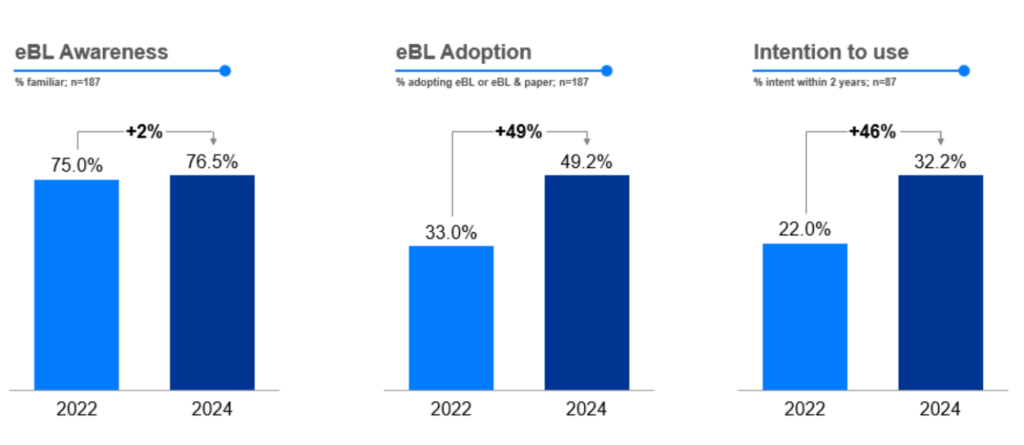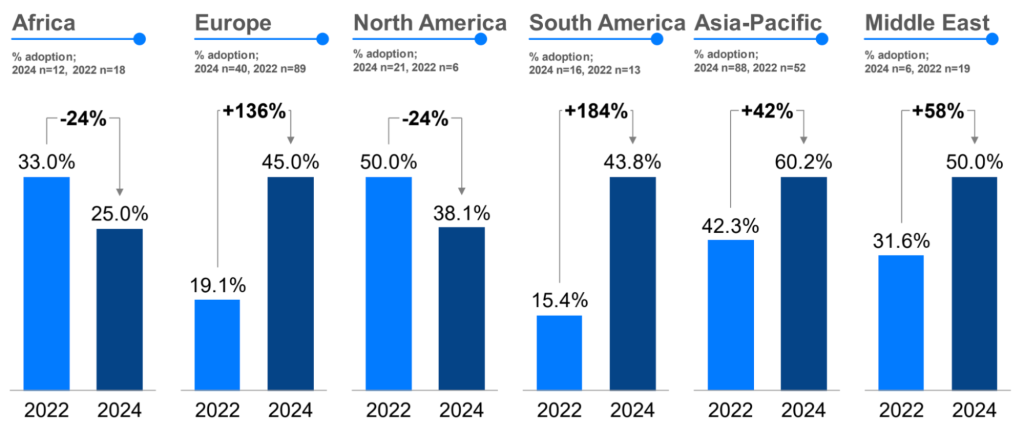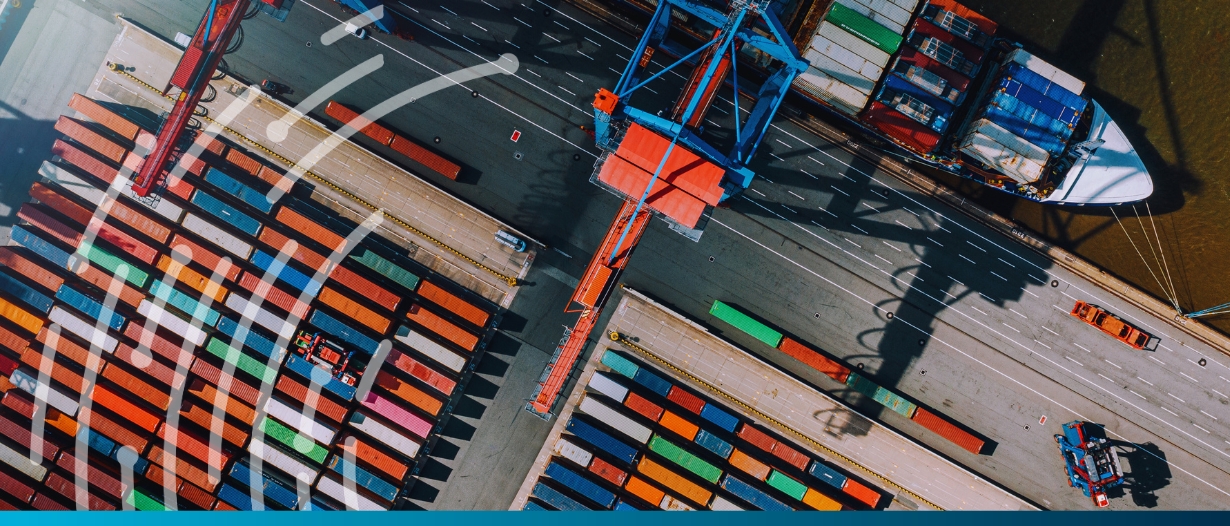Estimated reading time: 3 minutes
According to a survey by the FIT Alliance released this week, electronic Bills of Lading (eBLs) are growing in popularity as a critical catalyst for modernisation.
The study reveals a significant acceleration in the adoption of digital trade documentation, with 49% of surveyed businesses now using eBLs either exclusively or in combination with traditional paper bills. This represents an almost 50% increase from 2022.

The survey of 279 participants across 37 countries highlights both promising developments and persistent challenges. While awareness of eBLs has marginally improved to 77% from 75% in 2022, the adoption landscape remains fragmented.
Terminals and seaports lead the charge, with 100% total adoption rates, followed closely by ship owners and charterers at 74%. However, the banking sector lags significantly, with only 21% of respondents currently supporting eBLs.
Geographically, Asia leads in terms of adoption rates at 60.2%, followed by the Middle East at 50%, and Europe at 45%. Large organisations with over 250 employees are also at the forefront, which highlights the technological barriers faced by smaller enterprises.

The survey suggests cautious optimism, with 32.2% of respondents planning to implement eBLs within two years—a notable 10 percentage point increase from 2022.
An interesting observation is the gap between intention and knowledge. Freight forwarders and charterers show particularly strong intentions, with 45 and 50% respectively planning to transition within the next two years. However, their levels of awareness were lower, with just 64 and 66% reporting familiarity. Ship agents lag further still: just a third of respondents demonstrated familiarity. The FIT Alliance suggests industry-wide educational campaigns and tailored, applicable support programs, taking a targetted approach to equipping parties across a supply chain.
The potential benefits of eBLs extend far beyond mere digitisation. An overwhelming 94% of respondents believe eBLs can drive broader digital transformation, citing advantages such as increased transaction speed (94%), cost savings (90%), and enhanced data accuracy and security.
The alliance identifies three primary challenges: technological interoperability, stakeholder readiness, and legal frameworks. It also emphasises that businesses need not wait for complete legal alignment to adopt eBLs.
The FIT Alliance, formed in February 2022 by BIMCO, DCSA, FIATA, ICC, and Swift, aims to accelerate the adoption of a universal, standards-based eBL across the shipping industry. By creating a technological and legal foundation for digital trade documentation, the alliance seeks to unlock significant economic and environmental benefits, including potential industry cost savings of $6.5 billion, trade growth of $30-40 billion, and annual savings of 28,000 trees by eliminating paper-based bills of lading.
























